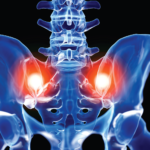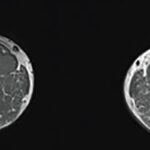(Reuters Health)—Many doctors who order computed tomography (CT) or magnetic resonance imaging (MRI) scans for patients with low back pain do so fearing that patients will be upset if they do not get imaging and because there is too little time to explain the risks and benefits of the tests, a new study found.
The Choosing Wisely campaign, launched by the American Board of Internal Medicine in 2012, recommends against imaging scans for low back pain unless there are specific “red flags.” But a study earlier this year found that almost a third of lumbosacral MRI scans in the Department of Veterans Affairs (VA) were “inappropriate,” the authors note.
“Overuse of diagnostic tests is a common problem in healthcare as a whole, and affects both the VA and private-sector settings,” says coauthor Dr. Erika D. Sears of the VA Center for Clinical Management Research in Ann Arbor, Mich. “Low back pain is often highlighted because it is a common condition where overuse of imaging or treatments can consume a high level of resources.”
Sears and colleagues surveyed 579 VA physicians, nurse practitioners and physician assistants, including demographic questions and a hypothetical scenario in which a 45-year-old woman with nonspecific low back pain requested a CT scan or MRI.
Only 3% of clinicians thought the patient would benefit from having a CT or MRI scan, and more than three-quarters said they would worry such a scan would lead to more unnecessary tests or procedures.
But just as many also felt they would not be able to refer the woman to a specialist without obtaining imaging first, and more than half worried she would be upset if she didn’t get the imaging she wanted.
About 15% of clinicians thought it would be difficult for them to follow the recommendation against imaging, but 63% believed it would be difficult for most patients to accept it, as reported in JAMA Internal Medicine on Oct. 17.1
“You see the headlines of major sports stars getting an MRI tomorrow, so some high school athlete or college athlete or recreational athlete thinks if Derek Jeter got one why don’t I,” says J. C. Andersen, chair of the department of Health Sciences and Human Performance at The University of Tampa, Florida, who was not part of the new study.
“Tony Romo of the Cowboys got an MRI, but they’ve got lots of resources that the rest of us don’t have, and it may or may not have helped him get any better,” Andersen says.

